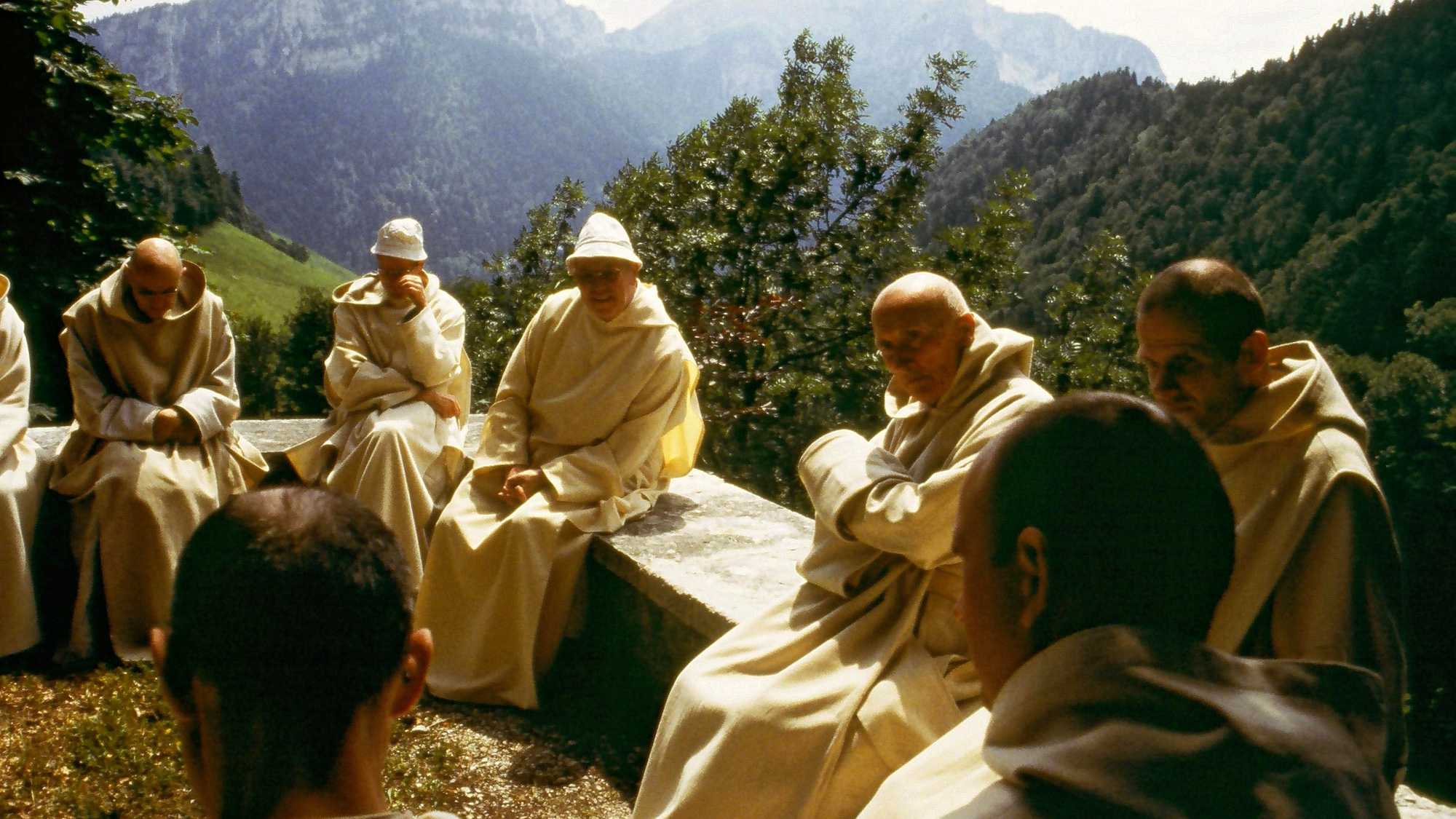German documentary about Roman Catholic monks who barely utter a word runs to 162 engrossing, entrancing, enlivening minutes. “A masterful object of contemplation.” — Slant Magazine

Friend, whoever you be, whoever led you here, welcome. Little or nothing fashionable in this site, not even originality…
Screened as part of NZIFF 2006
Into Great Silence 2005
Die Große Stille
“A German documentary about Roman Catholic monks who barely utter a word, Into Great Silence runs 162 minutes – 162 engrossing, entrancing, enlivening minutes. Operating the camera himself, the director, Philip Gröning, brings us inside a world as mysterious and often as silent as the dark side of the moon, a charterhouse of Carthusian monks in the French Alps. Founded in the 12th century, the Carthusians are among the most rigorous of all Catholic orders, since the monks (and separately accommodated nuns) mostly live alone in their individual cells. In an overwhelmingly noisy world, the Carthusians seek God in solitude.
Because solitude is the essential vocation of the Carthusians, Into Great Silence is purposely low volume, with no voice-over and little exegesis… Framed by the seasons, the film opens in a wintry hush with the introduction of two initiates. In the days and seasons that follow, the filmmaker takes us in and around the charterhouse and cells, following the initiates and monks as they eat, pray, work – planting, cooking, sewing – and sometimes play. Through unrushed rhythms and a harmonious mise-en-scène, Gröning finds beauty in a mote of dust, a patch of newly tilled earth and the long white eyebrows that hang over an aged blind monk’s eyes like a curtain. Grace, it seems, makes little noise.” — Manohla Dargis, NY Times
“The utter conviction of Gröning’s subjects in the rightness of the world… is mirrored in the simple and sublime achievement of his film: telling us things we already know with an eloquence that makes us appreciate the depth and import of that knowledge.” — Andrew Trac, Cinema Scope